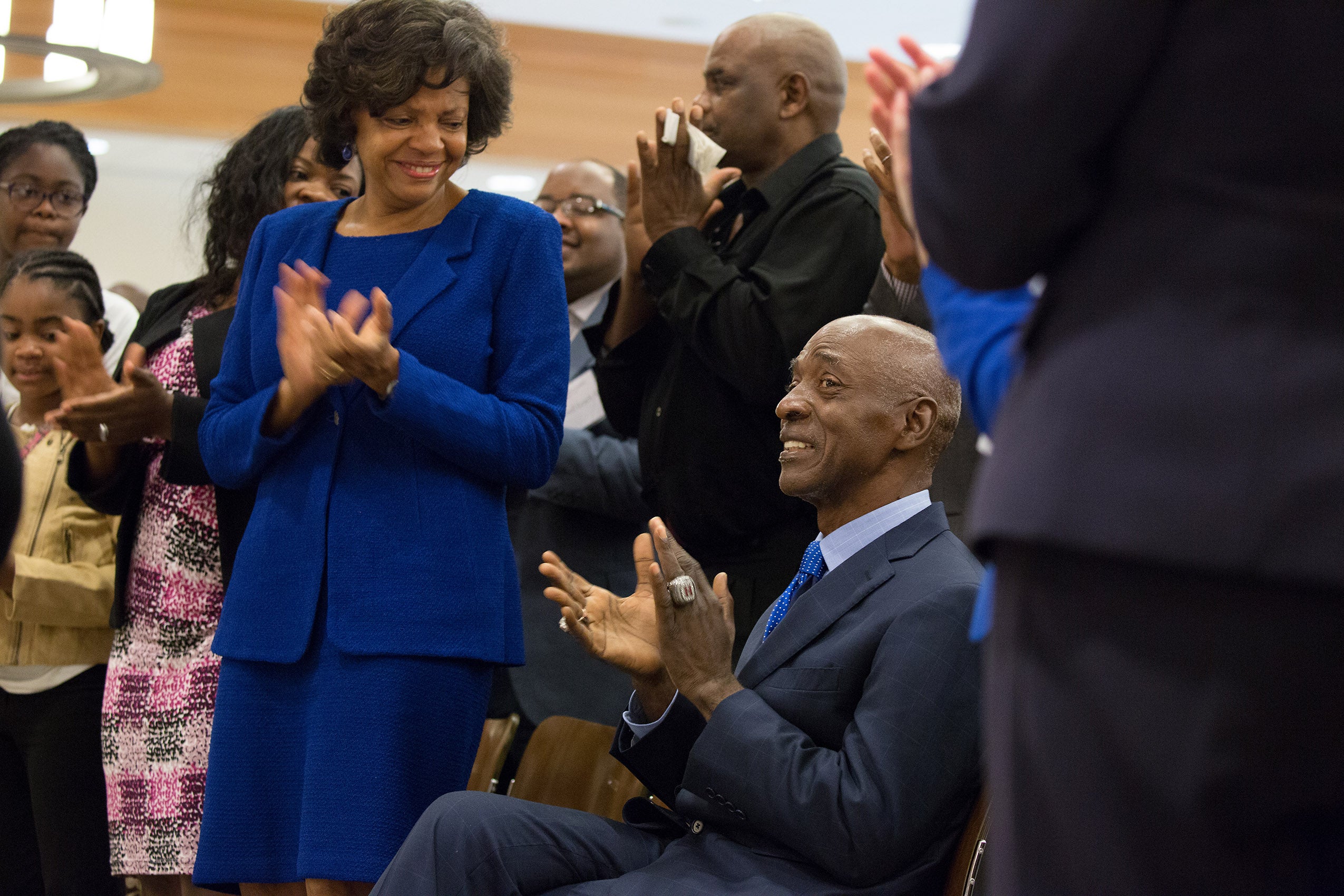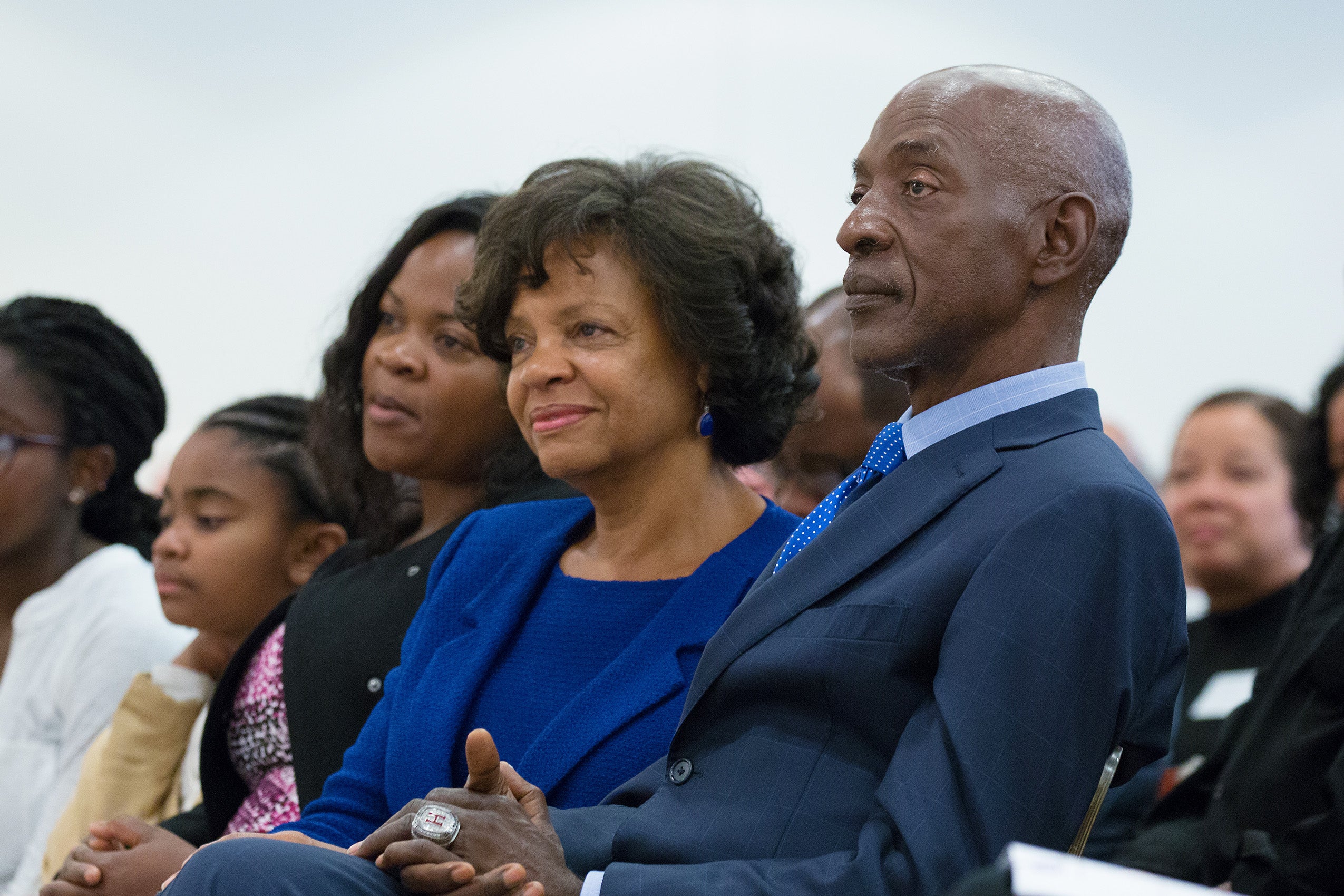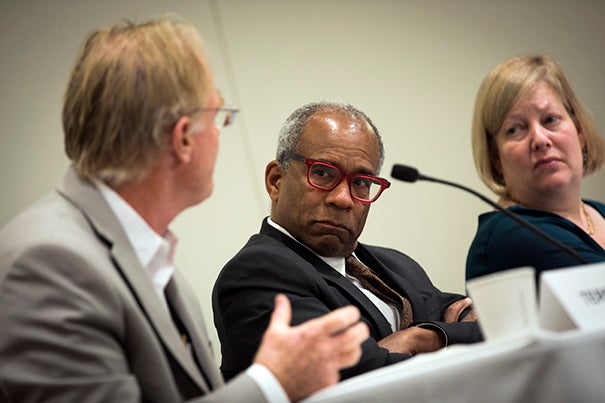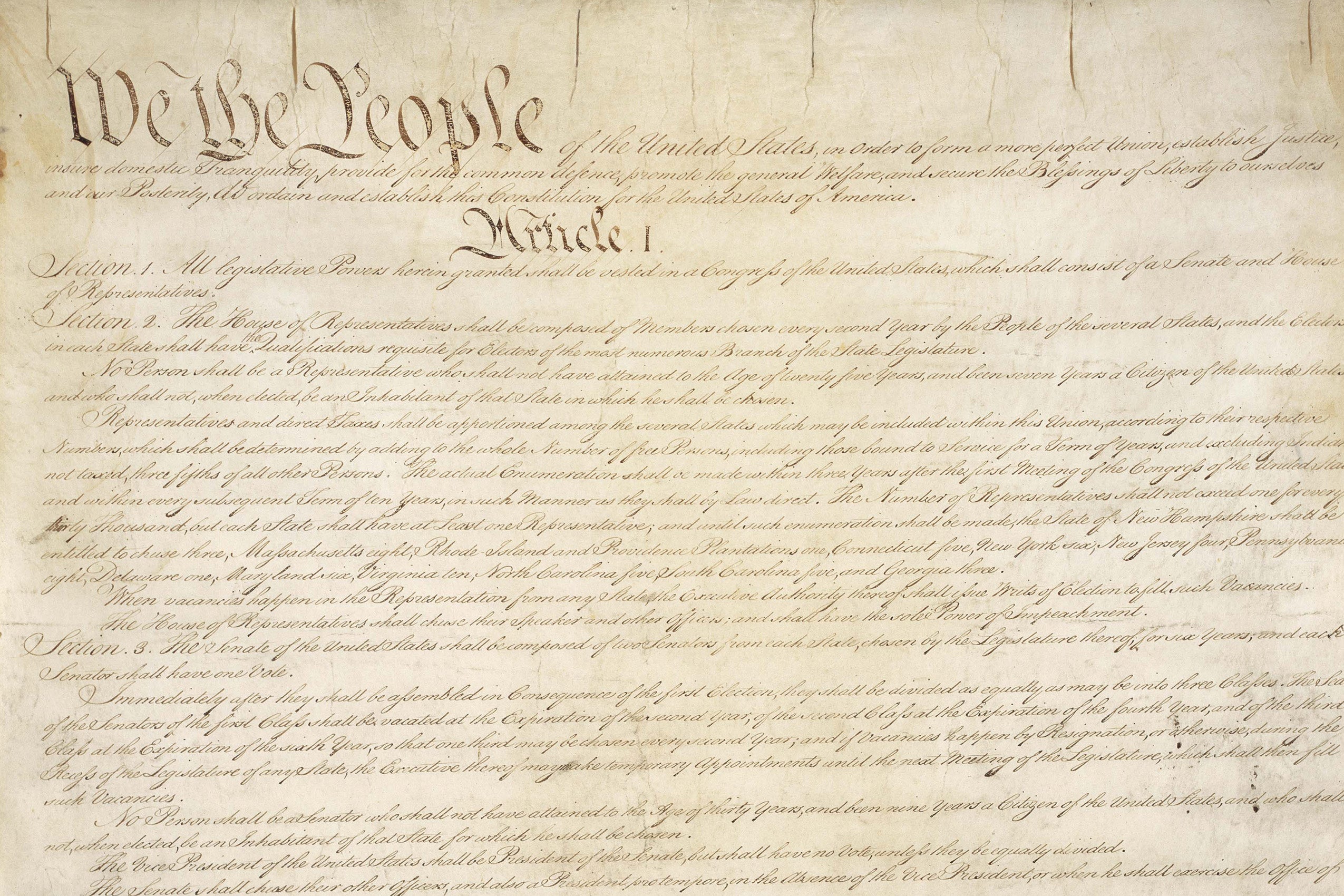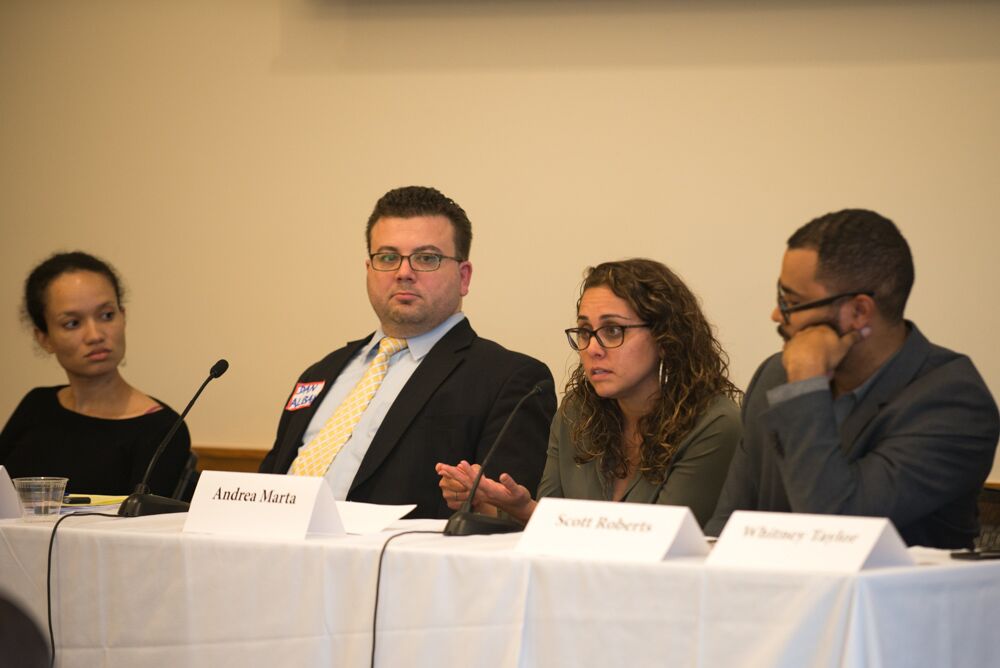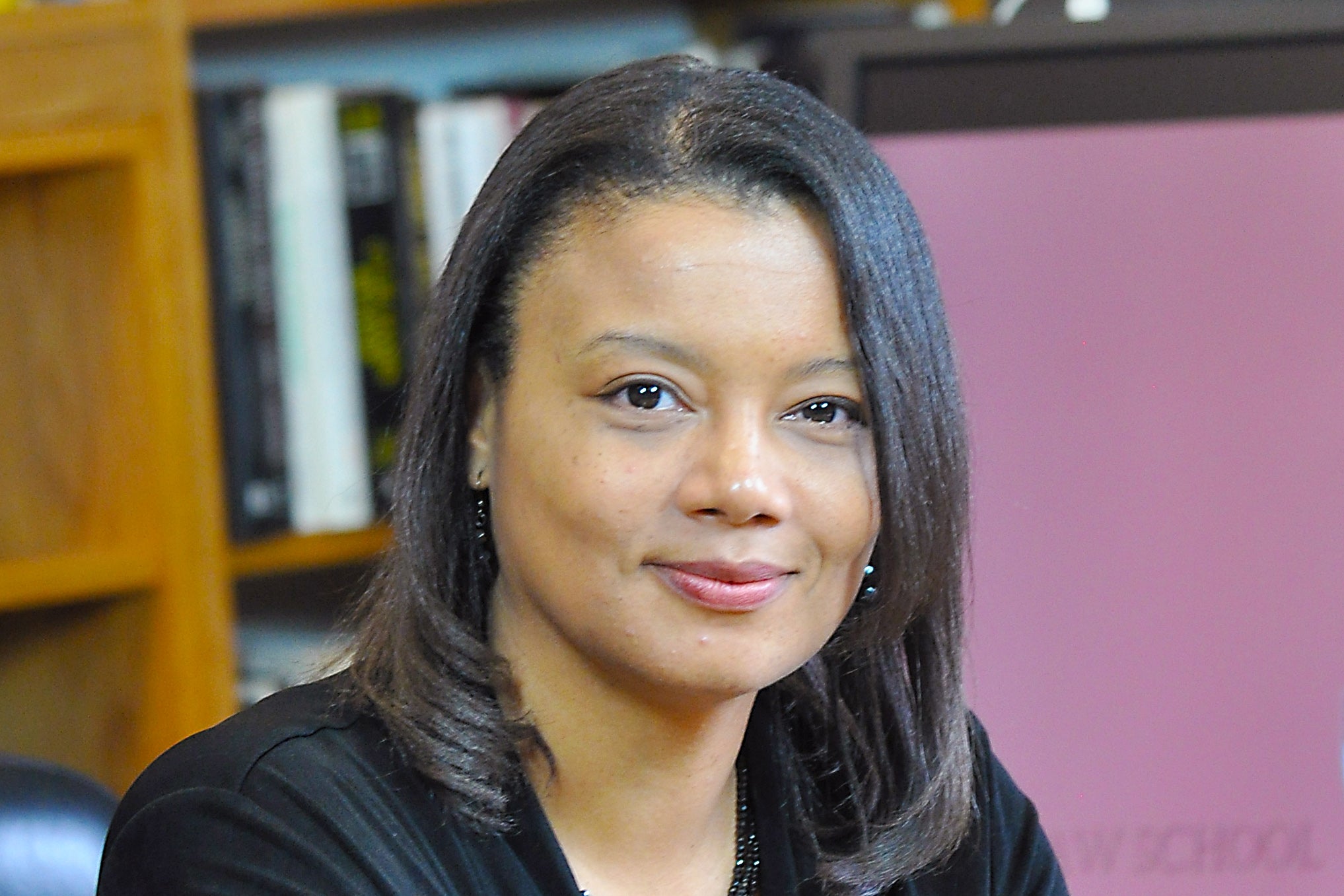People
Tomiko Brown-Nagin
-
As the nation faces the frequency of sexual harassment and assault at work, both experts who study the problem and the agency that enforces laws against it say that it’s women at the bottom of the labor market who suffer sexual harassment most often and are least likely to see anything like justice. Their experiences also suggest that the lines between predators and complicit cover artists don’t fall neatly along gender lines — often, the stories include women who overlooked sexual assaults or even facilitated harassment of female workers with less power to fight it...Vinson is a former Washington bank clerk who filed the suit which established the legal concept of the “hostile work environment” and prompted the Supreme Court to declare this a form of discrimination under Title VII of the 1964 Civil Rights Act. Vinson is also one of several black women who brought litigation central to almost every sexual harassment case which reaches a courtroom today, said Tomiko Brown-Nagin, a constitutional law professor at Harvard University and a legal historian.
-
Justice Department Threatens To Sue Harvard In Admissions Probe
November 22, 2017
The Department of Justice has opened a probe into the role of race in Harvard University's admissions policies and is threatening to sue unless Harvard turns over documents by a Dec. 1 deadline, according to correspondence obtained by NPR....In August when the probe was confirmed, legal experts told Carapezza that they were skeptical about the allegations of race-based discrimination: " 'It seems entirely consistent with President Trump's campaign rhetoric,' says Tomiko Brown-Nagin, a constitutional law professor at Harvard. Brown-Nagin points out that the Trump administration's decision to target affirmative action policies comes as racial tensions are rising on many campuses.
-
Harvard Symposium Examines Charles Hamilton Houston’s Enduring Legacy
November 20, 2017
Two universities recently convened a symposium to honor the work and influence of the late civil rights lawyer Charles Hamilton Houston. Harvard University’s Charles Hamilton Houston Institute for Race and Justice (CHHRIJ) and Clemson University’s Charles H. Houston Center for the Study of the Black Experience in Education hosted “The Enduring Legacy of Charles Hamilton Houston: 3rd Biennial Symposium” at Harvard Law School last week...“The theme of building bridges to the future follows directly from the work of Charles Hamilton Houston, whose work was always built on establishing a foundation from which one could go further,” said Dr. David Harris, managing director of CHHRIJ. “He did not see school desegregation as an end but a beginning of a pathway forward. Although he would surely be disappointed in the delays we have experienced as a nation in closing the gaps between students of color and White students, he would applaud the efforts of all our panelists to eliminate obstacles and create opportunities.”...“We believe that there is so much unfinished business with regard to educational access,” [Tomiko Brown-Nagin] added. “Students of color still suffer disadvantages: disproportionate punishment, fewer resources, less experienced teachers. By working in the educational space around issues of access and quality, the Houston Institute continues the legacy of its namesake,” she added.
-
Opening the gates, closing the education gap
November 17, 2017
...Tomiko Brown-Nagin, professor of history in the Faculty of Arts and Sciences, Daniel P.S. Paul Professor of Constitutional Law, faculty director of the Charles Hamilton Houston Institute, and co-director of the Program in Law and History at Harvard Law School, grew up in the Deep South in the 1970s and was among the first African-Americans in her area to attend an integrated school. “Many will say desegregation is too costly for black students; there’s social isolation, low expectations, and a lot of other disadvantages,” Brown-Nagin said. “But at bottom the benefits outweigh the costs. Students who attend desegregated schools end up with higher career aspirations and in a higher place in our world.”
-
Are You First Gen? Depends on Who’s Asking
November 3, 2017
Trying to help a high school senior get into his dream school, Laurie Kopp Weingarten called the college to emphasize that the boy should be able to lay claim to the latest, and fuzziest, of all admissions hooks: being a first-generation student...Some public policy experts believe the definition should be narrowed for admissions and financial aid. Tomiko Brown-Nagin, a Harvard law professor, argues that only those most in need should receive special admissions considerations. She wants both parental education and income taken into account, limiting the definition to those whose parents never attended college and are eligible for Pell grants.
-
Hundreds of friends, family members, and colleagues of Law School professor Charles J. Ogletree Jr. celebrated his lifetime of legal work at an event announcing a professorship endowed in his honor earlier this month. Law School professor David B. Wilkins said the idea of endowing a Law School professorship in Ogletree’s honor came about during a discussion between some of Ogletree’s good friends, including Harvard Corporation members Kenneth I. Chenault and Ted V. Wells...Tomiko Brown-Nagin, a Law School professor and the current faculty director of the Charles Hamilton Houston Institute, also emphasized Ogletree's work regarding sexual harassment..."He also helped raise consciousness about the sexual harassment of working women—an enduring issue for women across a range of industries—through his representation of Professor Anita Hill,” Brown Nagin wrote in an email.
-
‘Tree’s’ tremendous legacy: Celebrating Charles Ogletree ’78
October 11, 2017
It took an all-star team of panelists to honor the scope and influence of Charles Ogletree’s career last week at HLS—eminent friends, students and colleagues all paying tribute to a man that the world knows as a leading force for racial equality and social justice, and that the Harvard community knows affectionately as Tree.
-
Honoring Charles Ogletree
October 11, 2017
Hundreds of friends, former students, colleagues, and well-wishers gathered last Monday in a joyful celebration of the life and career of Harvard Law Professor Charles Ogletree, advocate for Civil Rights, author of books on race and justice, and mentor to former President Barack Obama and first lady Michelle Obama.
-
Honoring Charles Ogletree
October 5, 2017
It felt like a family reunion — with 600 relatives. That many friends, former students, colleagues, and well-wishers gathered Monday in a joyful celebration of the life and career of Harvard Law Professor Charles Ogletree, advocate for Civil Rights, author of books on race and justice, and mentor to former President Barack Obama and first lady Michelle Obama...And when John Manning, the Morgan and Helen Chu Dean and Professor of Law at HLS, announced that a group of Ogletree’s friends had established an endowed professorship in his honor, the Charles J. Ogletree Jr. Chair in Race and Criminal Justice, the news brought down the house...The chair was made possible through the generosity of a group of Ogletree’s close friends, said David Wilkins, Lester Kissel Professor of Law. “When the history of Harvard Law School in the 20th century is written, Charles Ogletree’s name will be among the first ones mentioned,” said Wilkins...The panelists told stories to “bring home the Tree-ness of Tree,” as Randall Kennedy, Michael R. Klein Professor of Law, explained...Tomiko Brown-Nagin, Daniel P.S. Paul Professor of Constitutional Law, said, “Throughout his career, Ogletree has embodied law in the service of society, just the same as other great beacons of the American legal profession, men and women like Thurgood Marshall, Constance Baker Motley, and Charles Hamilton Houston.”...Another frequent participant was Obama classmate Kenneth Mack ’91, the Lawrence D. Biele Professor of Law. Mack said he learned about Houston in a Saturday School class. It was a time, he added, when few people knew about the lawyer whom Ogletree deemed one of the 20th century’s greatest legal minds and Civil Rights lawyers.
-
Thurgood Marshall: The soundtrack of their lives
October 2, 2017
Thurgood Marshall is revered as a titan of the U.S. Civil Rights Movement, the architect of the landmark court case that ended legal segregation in America’s public schools, and the first African-American Supreme Court justice. Yet for five of his former law clerks gathered Wednesday at Harvard Law School (HLS), he was more than that. For Mark Tushnet, William Nelson Cromwell Professor of Law, Marshall was a messenger of hope and courage to African-Americans who endured the injustices of the Jim Crow South...For Randall Kennedy, Michael R. Klein Professor of Law, who clerked for Marshall in the ’80s, the associate justice was a source of pride, lifting the spirits and the consciousness of black Americans who were treated as second-class citizens...For Martha Minow, former dean of Harvard Law School, Carter Professor of General Jurisprudence, and University Distinguished Service Professor, who also clerked for Marshall, he was the embodiment of a deep commitment to social justice and faith in the power of the rule of law to bring equal rights to all eventually...The panel was moderated by Tomiko Brown-Nagin, Daniel P.S. Paul Professor of Constitutional Law, director of the Charles Hamilton Houston Institute for Race & Justice, and professor of history in the Faculty of Arts and Sciences, and Kenneth Mack, the Lawrence D. Biele Professor of Law...“He was a formidable person in all respects,” recalled another former clerk, William Fisher, WilmerHale Professor of Intellectual Property Law and faculty director of the Berkman Klein Center for Internet & Society...Carol Steiker, Henry J. Friendly Professor of Law and Special Adviser for Public Service, said she developed a lifelong interest in death penalty law during her clerkship with Marshall.
-
Thurgood Marshall: The soundtrack of their lives
September 29, 2017
Thurgood Marshall is revered as a titan of the U.S. Civil Rights Movement, the architect of the landmark court case that ended legal segregation in America’s public schools, and the first African-American Supreme Court justice. Yet for five of his former law clerks gathered Wednesday at Harvard Law School, he was more than that.
-
Ordained and established: HLS scholars dissect the framers’ contributions
September 18, 2017
On Sept. 17, 1787, the framers of the U.S. Constitution gathered to sign the historic document created to unite a group of states with different interests, laws and cultures; today, HLS faculty voices are providing us with history, interpretation and critical analysis of that document.
-
Redefining the role of prosecutors
August 31, 2017
The Charles Hamilton Houston Institute for Race & Justice at Harvard Law School joined forces with the ACLU of Massachusetts to host a daylong conference at Harvard Law School in June, titled “Redefining the Role of the Prosecutor within the Community.”
-
The Trump administration wants to investigate discrimination against Asian-American college applicants. The Justice Department is reopening an investigation into a complaint that was filed against Harvard accusing the Ivy League school of racial discrimination in its admissions practices...Civil rights groups and legal experts are skeptical. “It seems entirely consistent with President Trump’s campaign rhetoric,” says Tomiko Brown-Nagin, a constitutional law professor at Harvard. Brown-Nagin points out that the Trump administration’s decision to target affirmative action policies comes as racial tensions are rising on many campuses.
-
An interview with Tomiko Brown-Nagin. According to an internal document obtained by our partners at The New York Times, the Department of Justice (DOJ) will shift its priorities away from enforcing anti-discrimination laws on behalf of minorities, and focus instead on cases where white college applicants claim they've been discriminated against. The DOJ's project will focus on "intentional race-based discrimination," a phrase at the heart of affirmative action. The Supreme Court has ruled that race can be used as one factor among many in a “holistic” admissions process, but there are still many cases, related to universities that receive federal funding, where the lines are murkier.
-
A decades-old settlement in Manhattan federal court serves as a measuring stick for how far Big Law has come in the fight for gender equality...The case, Blank v. Sullivan & Cromwell, was part of a series of lawsuits and complaints filed in the 1970s that put law firms on notice that women expected equal treatment in the legal profession under the relatively new law, Title VII of the 1964 Civil Rights Act, which prohibited employment discrimination based on race, color, religion, sex, and national origin...Blank “was one of the handful of cases that opened up the law firm world to women,” said Tomiko Brown-Nagin, a Harvard Law School professor who studied the case as part of her work on a biography of Constance Baker Motley, the Southern District of New York judge who oversaw it.
-
Leading civil rights and education groups directed a torrent of criticism at a Malden charter school Friday for disciplining black and biracial students who wear hairstyles that administrators say violate the school’s dress code...The school’s desire to erase economic differences among students — to, in effect, create a level playing field — is reasonable, said Tomiko Brown-Nagin, a Harvard Law School professor who teaches education law and policy. But such policies, she said, can rub up against the equally reasonable imperative to be non-discriminatory. Brown-Nagin said courts have given employers and schools wide discretion in grooming codes but have challenged schools’ discretion when grooming codes infringe on cultural expression. “It strikes me as a laudable goal to try to reduce visible economic disparities among students,” Brown-Nagin said.
-
Can historians make their work count in the courts without compromising on their academic principles? It’s a question more scholars now have reason to grapple with. Historians say they feel that they are being asked to write or sign amicus briefs in Supreme Court cases more frequently...Ms. [Tomiko] Brown-Nagin is a strong proponent of historians’ playing an active role in court. She says worrying about whether a position in one case will hurt an argument in another "assumes a consistency and coherence in law that is just not there." Furthermore, there’s a growing need for people with a firm grasp of the facts to weigh in on consequential cases, she said. "We’re in an era where there’s skepticism of expertise," Ms. Brown-Nagin said. "It’s important for historians and others to assert their authority and push back."
-
Harvard Law School Dean Martha Minow has appointed Professor Tomiko Brown-Nagin to be the faculty director of the Charles Hamilton Houston Institute for Race and Justice (CHHI) at HLS.
-
An op-ed by Tomiko Brown-Nagin. The most successful protest movements in history have been the ones that have set their own agendas. Whether abolitionists, women’s suffrage advocates, or civil rights activists, progressive change movements have gained influence by disrupting politics as usual — not by slavishly aligning themselves with electoral parties. However, electoral politics — in particular, Democrats’ desire to win the next round of elections — is distorting conversations about the significance of the protests that have unfolded since the election of Donald Trump.
-
Presidential Legacy: How Will Obama Go Down in History? (audio)
January 17, 2017
As President Barack Obama prepares to leave the Oval Office, we ask experts how the 44th president of the United States will be remembered. Khalil Gibran Muhammad, professor of history, race and public policy at Harvard University; Tomiko Brown-Nagin, the Daniel P.S. Paul professor of constitutional law at Harvard Law; and Jim Demers, a political consultant with The Demers Group in New Hampshire join Under the Radar to discuss how Obama’s policies, popularity and grassroots revolution changed American politics.
